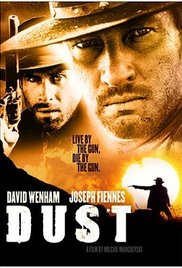Critical response
The film caused controversy when it premiered as the opening film of the 2001 Venice Film Festival. A number of critics accused Manchevski of having a political agenda and using the film to express it. The Evening Standard critic Alexander Walker claimed the film was portraying the Turkish army in a bad light and even called it racist. Several other critics saw the film as taking sides in the then armed conflict in Macedonia, in spite of the fact that the film was filmed before the hostilities began. Charges were nevertheless leveled that Manchevski's film was anti-Muslim, anti-Albanian and anti-Turkish. He did not respond to the accusations in Venice, presumably hoping the film would speak for itself. He, however, did respond later, explaining that the film was even-handed in its portrayal of brutal killers – it did not spare the Macedonians, Albanians, Turks, Greeks – or the Americans, for that matter. Even though the reviews (and even some of the original reviewers) were more nuanced once the film moved from Venice to the regular theaters, the damage was done, and Dust never achieved the wide distribution expected from the follow-up to the successful Before the Rain . [3] [4]
The film received mostly mixed to negative reviews from film critics. On the review aggregator website Rotten Tomatoes, the film holds a 20% rating, based on 15 critical reviews. [5] David Stratton of Variety gave the film a poor review, writing, "Essentially a Euro Western, spectacularly lensed in Macedonia [the] film borrows freely and unwisely from superior predecessors in the genre, while struggling to explore interesting themes involving the personal legacy we hand down to our descendants. [The film's] main problem in positioning itself commercially is that it straddles the genres: It's too arty to cut it as a violent action pic and too gore-spattered to appeal to the arthouse crowd." [6]
Kevin Thomas of the Los Angeles Times wrote, "Dust is a bust, a big bad movie of the scope, ambition and bravura that could be made only by a talented filmmaker run amok." [7] Elvis Mitchell of The New York Times wrote, "Milcho Manchevski's stylized western, Dust, is a potent, assured and ambitious piece of filmmaking brought down by weighted dialogue and, playing Americans, the British actors Adrian Lester and Joseph Fiennes and the Australian David Wenham. This dazzling and dazed movie begins on the streets of contemporary New York, as a camera moseys down a street and then crawls up the side of a building, peering into several windows as various apartment dwellers play out their lives. It's as if Mr. Manchevski were thumbing through a selection of stories as we watch, deciding which appeal to him the most." [8]
Later, though, the film was reassessed in a number of essays focusing on its complex fractured narrative.
